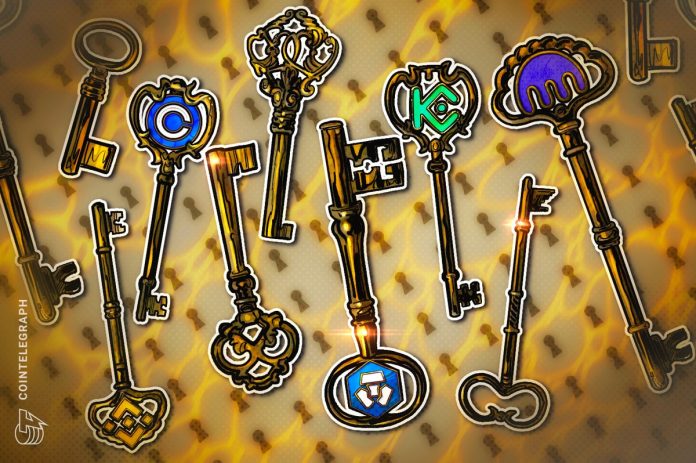The current way of doing business with cryptocurrency exchanges is based on fear and a lack of understanding.
It relies on the assumption that investors are not well-versed in decentralized finance (DeFi). And their fear of what could happen to them if they make a mistake in their crypto investments.
This seems like an obscure and risky endeavor to many. Unsurprisingly, there are worries over losing assets during market crashes, security keys being misplaced through carelessness or being scammed. Given the volatility and the presence of criminals, con-artists, braggarts, and scammers in the industry, these concerns are legitimate.
In theory, these worries can be taken care of by exchanges. They serve to protect the average retail investor from danger. A safety device is provided to them to safeguard their savings. This model has enabled exchanges to experience tremendous growth in recent years and generate substantial wealth.
However, it would be negligent for those running cryptocurrency exchanges to think that the level of ignorance, and the fear it breeds, will remain the same. Customers are becoming more savvy and knowledgeable every day. The next wave of investors will learn crypto in different ways, such as market trends like GameFi or non-fungible tokens. As adoption rises, so does the average customer’s understanding. This reduces the need for exchanges.
Related: FTX demonstrated why banks must take responsibility for cryptocurrency
Many people are turned off by stories of disgraced crypto entrepreneurs, such as Sam Bankman-Fried and his scandal with FTX. Exchanges are no longer seen as safe havens. This, in combination with customers wanting to have more control, will only accelerate the trend.
If exchanges want to stay afloat, they must accept this shift in attitude instead of fighting it. To do this, they must empower customers and trust them to use their money and security keys.
This is not to say that it will be an easy or straightforward task. It is understandable that there are technical and educational limitations when it comes to returning security keys to clients. If a customer loses their security keys, it is almost certain they will never have access to those assets again.
The technological challenges that exchanges face are formidable. It is ironic, to say the least, that the whole infrastructure is centralized. This is not in line with the spirit and principles of DeFi. There are good reasons for it, however.
The DeFi application ecosystem, branded as ‘ecosystem for DeFi apps,’ is decentralized and charges only a small transaction fee. But this comes with a price. Uniswap is unregulated and anyone can create a token to scam people and then run tests. That is why exchanges are doing all they can to make sure that projects don’t go wrong.
Related: What to Expect from Cryptocurrencies in the Year After FTX
But there are ways in which a centralized market can use more decentralized methods, without falling into certain traps. It is possible to create a hybrid system, combining the best of both worlds.
Retail investors and users of the average exchange do not want to purchase tokens that could pull the rug from under their feet. But they do want to be sure that their crypto can always be accessed. Having ownership of their assets and managing the price requires responsibility. And this requires the necessary education.
It is important to recognize that the faster customers learn crypto, the sooner they can be on the direct path to decentralization. That is why I am urging exchanges to take the decentralized route and build a hybrid system to protect customers and their own brands.
The history of corporate giants who failed to adapt to changing circumstances is replete with examples. Blockbuster was an arrogant giant who had no idea streaming would become a thing. Money is the same. If the bank holds it, it is not yours. If you exchange it, it is not your crypto. The key to freedom is to let go of any fear or responsibility.
Businesses, like living organisms, must evolve to survive. It is clear that customers want full control over their digital assets. If exchanges do not embrace this trend, they may be left behind.
Marcos Basa The managing director of Web3 Division of XwecanGlobal communications and public relations agency,. He He is also a director Hokk Finance as co-founder Muraskai, a mobile blockchain gaming and media studio.
This article is provided for information purposes only. It is not meant to be or should be taken as investment advice. The views, thoughts, opinions are the opinions and views of the author only and not necessarily reflect those of others. Cointelegraph.

